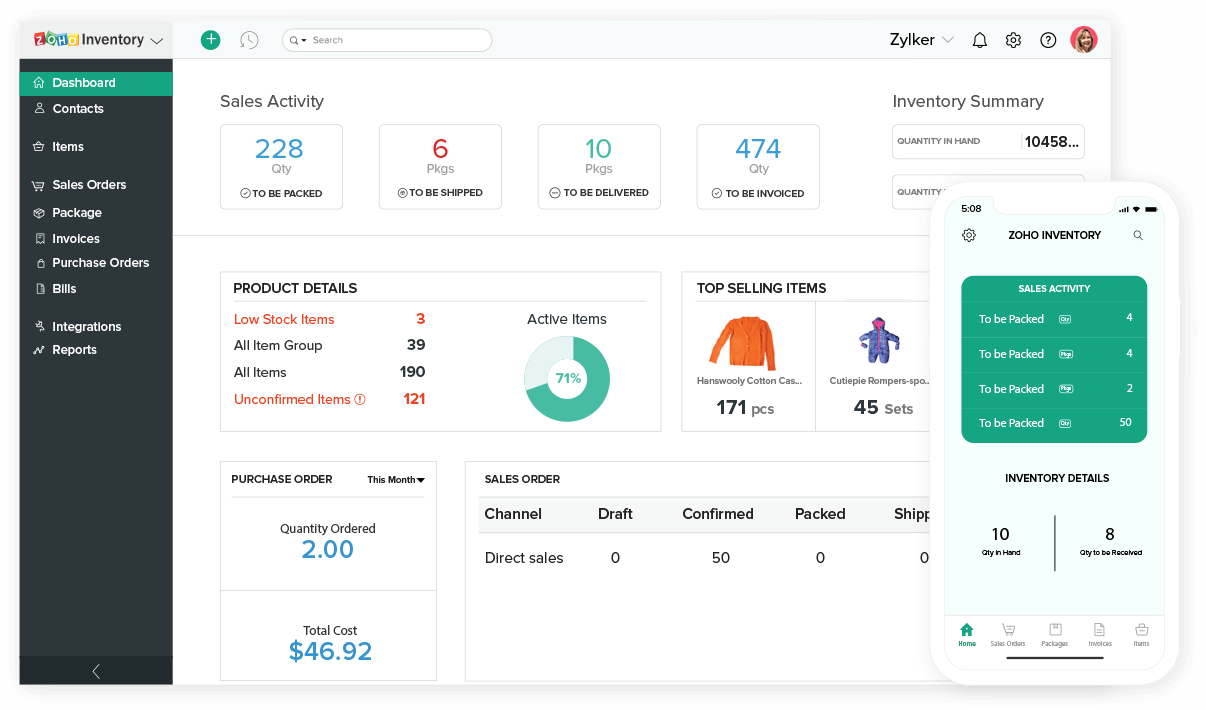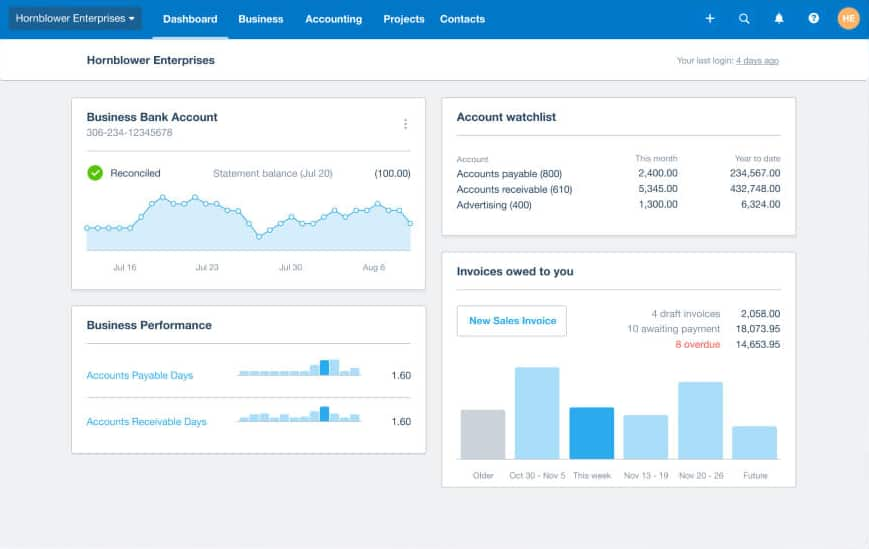In the dynamic landscape of small businesses, effective inventory management is crucial for success. Small business accounting inventory software emerges as a powerful tool, offering a comprehensive solution to streamline operations, enhance accuracy, and drive profitability. Dive into the realm of accounting inventory software and discover its transformative potential for your business.
Accounting inventory software empowers small businesses with real-time visibility into their inventory levels, enabling them to make informed decisions, optimize stock levels, and minimize losses due to overstocking or understocking. Its intuitive dashboards and reporting capabilities provide valuable insights into inventory performance, helping businesses identify trends, forecast demand, and adjust their strategies accordingly.
Overview of Small Business Accounting Inventory Software
Accounting inventory software is a crucial tool for small businesses to manage their inventory effectively and efficiently. It helps businesses keep track of their inventory levels, automate inventory-related tasks, and gain valuable insights into their inventory performance.
Key features and functionalities of accounting inventory software include:
- Inventory tracking: The software allows businesses to track inventory levels in real-time, ensuring they have the right amount of stock on hand to meet customer demand.
- Inventory valuation: The software helps businesses value their inventory using various methods, such as FIFO (first-in, first-out) or LIFO (last-in, first-out), providing accurate financial reporting.
- Inventory forecasting: The software uses historical data and demand patterns to forecast future inventory needs, helping businesses plan their inventory purchases and avoid overstocking or understocking.
- Inventory optimization: The software provides insights into inventory performance, identifying slow-moving or obsolete items, and suggesting strategies to optimize inventory levels and reduce waste.
- Reporting and analytics: The software generates comprehensive reports and analytics on inventory performance, providing businesses with valuable data to make informed decisions.
Types of Small Business Accounting Inventory Software
Small businesses can choose from a variety of accounting inventory software options, each with its own advantages and disadvantages. The type of software that is best for a particular business will depend on its specific needs and budget.
Cloud-Based Inventory Software
Cloud-based inventory software is hosted on a remote server, which means that businesses can access it from anywhere with an internet connection. This type of software is typically more affordable than on-premise software, and it is also easier to set up and maintain. However, cloud-based software can be less secure than on-premise software, and it may not be suitable for businesses that need to keep their data confidential.
On-Premise Inventory Software
On-premise inventory software is installed on a business’s own computer or server. This type of software is typically more expensive than cloud-based software, and it can be more difficult to set up and maintain. However, on-premise software is more secure than cloud-based software, and it is suitable for businesses that need to keep their data confidential.
Open-Source Inventory Software
Open-source inventory software is free to download and use. This type of software is typically less feature-rich than commercial software, but it can be a good option for businesses on a tight budget.
Commercial Inventory Software
Commercial inventory software is paid software that is typically more feature-rich than open-source software. This type of software can be a good option for businesses that need more advanced features, such as multi-location inventory management or barcode scanning.
Examples of Popular Accounting Inventory Software for Small Businesses
- QuickBooks Online
- Xero
- FreshBooks
- Zoho Inventory
- NetSuite
Features to Consider When Choosing Small Business Accounting Inventory Software

Selecting the right accounting inventory software is crucial for managing inventory effectively and streamlining accounting processes. Here are essential features to consider when evaluating software options:
First, determine your specific business needs. Consider the size and complexity of your inventory, the number of transactions you process, and any industry-specific requirements. Evaluate software that aligns with your business’s unique demands.
Inventory Management Capabilities
- Product Cataloging: Efficiently manage your inventory items with customizable product descriptions, SKUs, and multiple unit of measure support.
- Inventory Tracking: Real-time visibility into inventory levels, including on-hand quantities, stock movements, and reorder points.
- Inventory Valuation: Utilize different valuation methods (e.g., FIFO, LIFO, average cost) to accurately value your inventory and determine profitability.
- Inventory Forecasting: Forecast future demand based on historical sales data to optimize inventory levels and prevent stockouts.
- Inventory Optimization: Generate reports and insights to identify slow-moving items, optimize stock levels, and reduce inventory carrying costs.
Accounting Integration
- Seamless Integration: Ensure seamless integration with your accounting software to automate data transfer and eliminate manual entry errors.
- Automated Transactions: Automatically generate accounting entries for inventory purchases, sales, and adjustments, reducing the risk of errors.
- Financial Reporting: Access real-time financial reports that include inventory-related data, providing a comprehensive view of your business’s financial performance.
Additional Features
- Barcode Scanning: Enhance efficiency and accuracy with barcode scanning capabilities for inventory receiving, picking, and shipping.
- Mobile Access: Access your inventory data and perform tasks on the go with mobile-friendly software.
- Cloud-Based: Opt for cloud-based software to enjoy scalability, data security, and automatic updates.
- Customization: Choose software that allows you to customize workflows, reports, and dashboards to meet your specific business requirements.
Benefits of Using Small Business Accounting Inventory Software
Small business accounting inventory software offers a range of benefits that can significantly improve the efficiency, accuracy, and profitability of small businesses. By automating inventory management tasks and providing real-time data, these software solutions empower businesses to make informed decisions and streamline their operations.
Improved Efficiency
- Automates inventory tracking, reducing manual data entry and saving time.
- Eliminates the need for physical inventory counts, freeing up staff for other tasks.
- Streamlines order fulfillment processes, reducing errors and expediting delivery.
Enhanced Accuracy, Small business accounting inventory software
- Provides real-time inventory visibility, ensuring accurate records and preventing overselling.
- Reduces human error in inventory management, leading to improved data reliability.
- Automates inventory valuation, ensuring compliance with accounting standards.
Increased Profitability
- Optimizes inventory levels, reducing carrying costs and preventing stockouts.
- Improves cash flow by providing insights into inventory turnover and profitability.
- Enhances customer satisfaction by ensuring product availability and reducing order delays.
Case Study
XYZ Retail, a small business with multiple physical stores, implemented an accounting inventory software solution. The software automated inventory tracking, streamlined order fulfillment, and provided real-time inventory data. As a result, XYZ Retail experienced a 25% increase in inventory accuracy, a 15% reduction in carrying costs, and a 10% increase in sales due to improved product availability.
Implementation and Best Practices for Small Business Accounting Inventory Software

Implementing accounting inventory software in a small business can streamline operations and enhance efficiency. Here’s a step-by-step guide and best practices to ensure a successful implementation and effective utilization.
Step-by-Step Implementation Guide
- Define business requirements: Identify specific needs and goals for inventory management, such as tracking stock levels, optimizing inventory turnover, and minimizing waste.
- Select software: Research and compare different accounting inventory software options based on features, functionality, and compatibility with your business systems.
- Configure and customize: Set up the software according to your business processes, including defining item categories, setting up inventory locations, and establishing reorder points.
- Train staff: Provide comprehensive training to ensure staff understands the software’s functionality and best practices for its use.
- Implement and monitor: Launch the software and monitor its performance regularly, making adjustments as needed to optimize its effectiveness.
Best Practices for Effective Use
- Maintain accurate data: Regularly update inventory levels, including adjustments for sales, purchases, and returns, to ensure accurate reporting and decision-making.
- Utilize inventory management tools: Leverage features like reorder point notifications, inventory forecasting, and demand planning to optimize inventory levels and prevent stockouts.
- Conduct regular audits: Perform periodic physical inventory counts to verify software data and identify any discrepancies or shrinkage.
- Integrate with other systems: Connect accounting inventory software with other business systems, such as POS systems, accounting software, and CRM systems, to automate data transfer and streamline operations.
Tips for Integration with Other Business Systems
Integrating accounting inventory software with other business systems can enhance efficiency and provide a holistic view of operations. Consider the following tips:
- Identify key data points: Determine the specific data that needs to be shared between systems, such as inventory levels, sales orders, and purchase orders.
- Establish data exchange protocols: Define the methods and formats for data transfer, such as APIs, CSV files, or direct database connections.
- Test and monitor integrations: Conduct thorough testing to ensure data accuracy and seamless integration between systems, and monitor performance regularly.
Outcome Summary: Small Business Accounting Inventory Software

Embracing small business accounting inventory software is a strategic move that can revolutionize your operations. Its ability to streamline processes, enhance accuracy, and provide data-driven insights empowers small businesses to compete effectively in today’s dynamic market. By leveraging the capabilities of accounting inventory software, small businesses can unlock their full potential, drive growth, and achieve long-term success.
Commonly Asked Questions
What are the key benefits of using small business accounting inventory software?
Improved inventory accuracy, streamlined operations, reduced costs, enhanced decision-making, and increased profitability.
How do I choose the right accounting inventory software for my small business?
Consider your business size, industry, inventory volume, budget, and specific needs. Evaluate software features, user-friendliness, integration capabilities, and customer support.
Can accounting inventory software integrate with other business systems?
Yes, many accounting inventory software solutions offer seamless integration with accounting, CRM, and e-commerce platforms, enabling a centralized and efficient workflow.